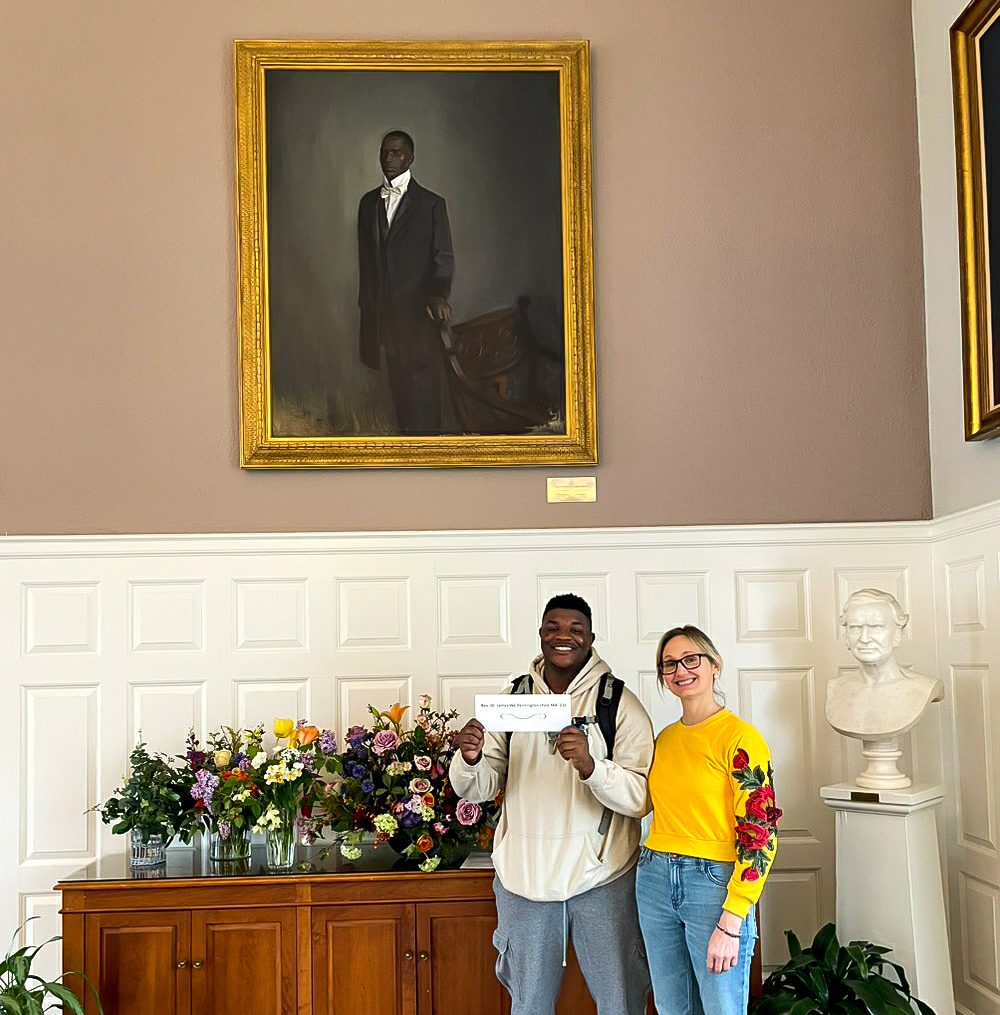Yale to award first Black student a posthumous degree
The push to award Pennington his degree 186 years after he studied at Yale has been far from easy, but student groups see the Board of Trustees’ decision as a step in the right direction.

Courtesy of Jon Ort
The decades-long push by students, alumni and members of the Yale Divinity School to grant the late Reverend James W.C. Pennington a degree has finally come to fruition.
On Monday morning, University President Peter Salovey announced in an email that the Board of Trustees has agreed to issue Pennington, along with the Reverend Alexander Crummell, posthumous M.A. Privatim degrees.
Both Pennington and Crummell studied theology at Yale during the 1830s and 40s, respectively, but because of their race, were denied various privileges that their white classmates had — including the ability to participate in discussion or borrow books from the library. They were also not allowed to matriculate for a degree. Pennington was a formerly enslaved person who went on to publish an autobiography and the first African American history textbook. Crummell was a scholar of pan-Africanism and the founder of the American Negro Academy in Washington, D.C.
“The decision to confer Yale degrees on Pennington and Crummell and the initiatives we have established so far in response to the research brought forth by the Yale and Slavery Working Group are milestones on our journey to understand and reckon with our history,” Salovey wrote in his email to the Yale community. “More work remains, and we will announce additional programs and projects as we approach the publication of the working group’s findings in early 2024.”
A ceremony in the fall of 2023 is slated to take place and commemorate the conferall. Details about the event and accessibility options are to be released early next academic year.
In his announcement, Salovey acknowledged that the degrees being awarded was by no means a reversal of the injustices that Black Americans have historically encountered at Yale. Rather, it was a step forward in holding Yale accountable, recognizing two men who made significant contributions to scholarship and cultivating a “stronger and more inclusive” University.
The Board of Trustees arrived at the decision following research by the Yale and Slavery Working Group, as well as advocacy by student and alumni groups, according to Salovey.
In recent months, student organizations such as the Yale Black Seminarians and Pennington Legacy Group have pushed Pennington’s story to the forefront of University discourse. On Feb. 23, the Graduate and Professional Students Senate passed a resolution to give Pennington the first posthumous seat at the organization, and in late March, members of the Divinity School published an open letter to Salovey and Associate Vice President for Institutional Affairs Martha Schall, reiterating their commitment to fighting for Pennington’s honorary degree.
Previous steps by the University to honor Pennington, including designating a HBCU scholarship and a room in the Divinity School in his name, were not enough, the letter emphasized.
Among the professors shedding light on the University’s historical ties with slavery is David Blight, a Sterling professor of history and a recipient of the Pulitzer Prize for History. Blight, who is chair of the Yale and Slavery Working Group, told the News that the group’s research is based on “primary source documents, prior scholarship and community memory.”
“For both Pennington and Crummell, there are deeply sourced contemporary biographies with comprehensive views of their lives,” Blight wrote in an email to the News. “Those books build on documentary evidence in 19th century newspapers and magazines, diaries, and correspondence.”
Noah Humphrey DIV ’23, founder of the Pennington Legacy Group and a co-chaplain of the Yale Black Seminarians, said that today’s announcement brought him hope and peace.
In previous interviews with the News, Humphrey had called attention to the tumultuous journey of communicating back and forth with University leadership on the matter. He said that the decision to confer the degree was the beginning of Yale upholding its motto of Lux et Veritas, or light and truth.
Meredith Barges DIV ’23, another organizer of the Pennington Legacy Group, credited Humphrey for keeping the “embers and fire burning on this issue” and expressed gratitude for the cross-campus student efforts this year that saw undergraduate and graduate students working together for the cause.
“It’s right that Pennington will be Class of 2023,” Barges said. “It means that Yale is not trying to erase what happened, not trying to deny this wrong. It tells the story of justice delayed 190 years.”
Pennington studied at Yale from 1834 to 1837, while Crummell studied at Yale from 1840 to 1841.
William Porayouw contributed reporting.







